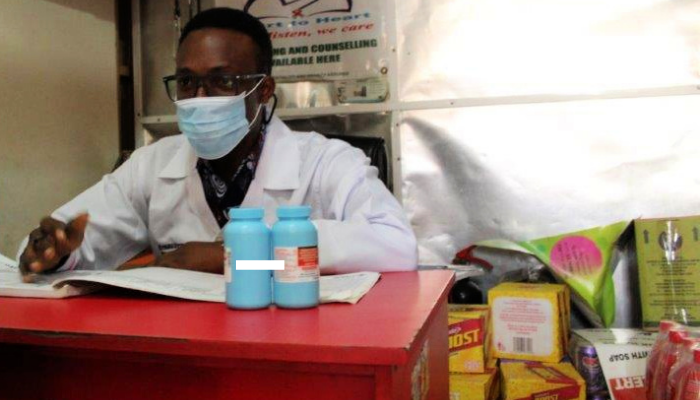Event Date
Jul 30–Jul 14
2020-22
Several countries in sub-Saharan Africa are implementing decentralized drug distribution (DDD) models to make HIV treatment services more convenient for patients while reducing the burden on health systems. To support these efforts, the USAID- and PEPFAR-supported Meeting Targets and Maintaining Epidemic Control (EpiC) project published Decentralized Distribution of Antiretroviral Therapy through the Private Sector: A Strategic Guide for Scale-Up. As countries proceed with rollout of DDD models, it is important to create a platform for knowledge exchange and cross-learning among implementers. To that end, EpiC is hosting a series of collaborative learning sessions to share the latest evidence and lessons learned from the decentralized delivery of ART, discuss challenges and identify solutions, and catalyze more widespread implementation of promising models.
This learning collaborative is intended primarily for stakeholders directly involved in implementing or supporting DDD models, including representatives from local implementing partners, ministries of health, and funding agencies. However, anyone interested in learning more about DDD models and how to introduce and scale them up is welcome to participate. While the learning collaborative is ongoing – with sessions hosted monthly – here is a round-up of recordings and presentations from the sessions hosted to date.
- Community pharmacy ART distribution models (July 30, 2020)
- Taking the digital step: Using automated dispensing to improve patient experiences (August 13, 2020)
- The contribution of private hospitals and clinics as part of sustainable financing of the HIV epidemic (August 27, 2020)
- Community distribution of ART (September 10, 2020)
- Supply chain and last-mile delivery considerations critical to DDD (September 24, 2020)
- Strategic Information – a comprehensive approach to DDD (October 8, 2020)
- Improving decision-making for DDD with GIS mapping and spatial modeling (November 19, 2020)
- Estimating the cost and cost savings from decentralized distribution of antiretroviral therapy (December 10, 2020)
- Getting beyond the low-hanging fruit: Strategies and experiences in increasing demand for decentralized HIV services (January 14, 2021)
- Unlocking the power of DDD: How DDD can work for TB, NCDs and family planning (February 11, 2021)
- “Nothing for us without us”: Learning from the experience of people living with HIV to optimize decentralization of HIV services (March 11, 2021)
- “Nothing for us without us”: Adapting decentralized drug distribution models to meet the needs of key populations (April 8, 2021)
- Leveraging decentralized drug distribution models to meet the HIV treatment needs of children and adolescents living with HIV (May 20, 2021)
- Case management and support for patients on decentralized drug distribution and multi-month dispensing (June 17, 2021)
- Progress made but still a lot more to do–understanding the nuances and final hurdles of Decentralized Drug Distribution (DDD) (July 15, 2021)
- Differentiated service delivery for HIV treatment (DSD ART) and the new WHO service delivery guidelines in the context of the Covid-19 pandemic (August 19, 2021)
- Exploring innovations to improve viral load testing access and coverage (October 28, 2021)
- Leveraging the DDD infrastructure to provide integrated HIV/NCD care (January 27, 2022)
- Leveraging DDD for HIV biomedical prevention: Implementation considerations and case studies (April 21, 2022)
- Leaving no one behind: focus on people with advanced HIV disease in the context of differentiated and decentralized ART (July 14, 2022)
Questions about the virtual learning collaborative? Please contact Lirica Nishimoto, EpiC Technical Officer (lnishimoto@fhi360.org).

